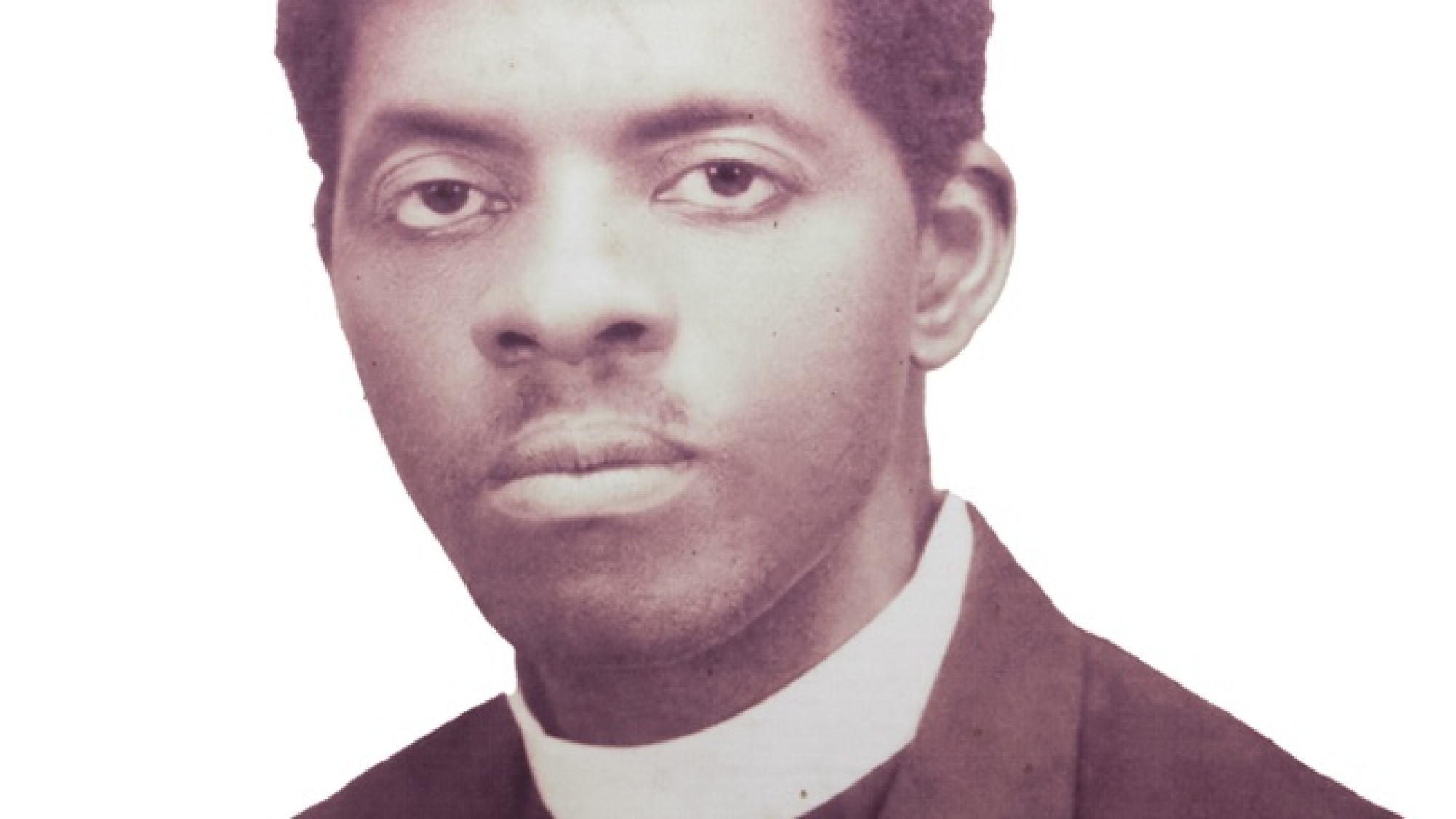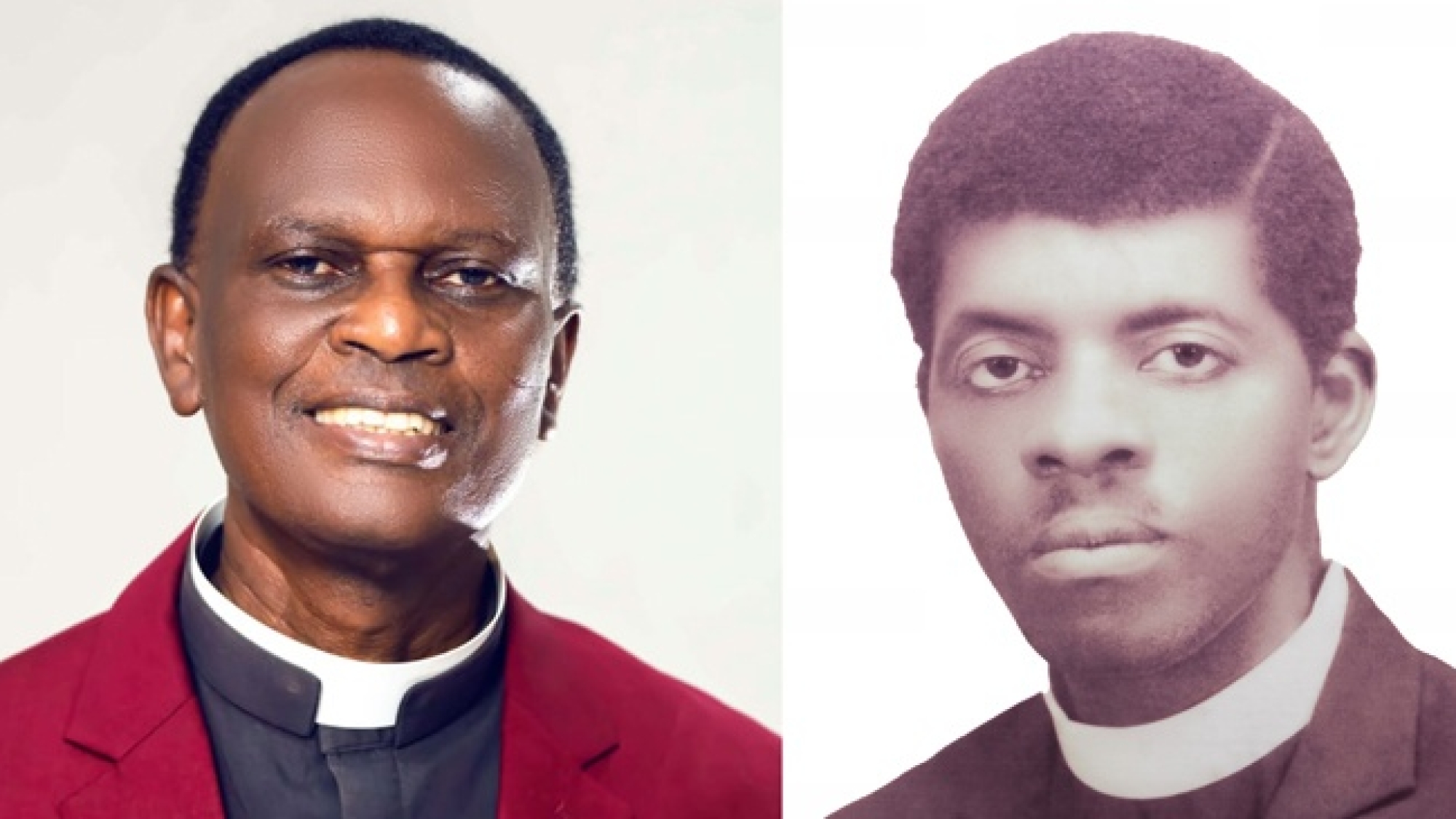The Cambridge Dictionary defines singing as the activity of making musical sounds with the voice, usually a tune with words. People usually compose or sing songs depending on the mood they find themselves. Songs equally have the power to create, change and dictates the mood of people whenever and wherever they are played. Songs are, therefore, not a mere amalgamation of words. They are spiritual in nature and content because they have direct access and control to the human soul. Even those that doesn’t appear to make any meaning and can be best described as sheer noise is able to control people’s actions and thoughts patterns.
Secular songs target a specific group of people or race with narratives of what they have been through or are going through. Believers, however, sing to God with their spirits announcing His awesomeness whiles communicating their expectations to Him as well. The Bible has not less than 200 songs with the first one known as Moses’ song in Exodus 15 after the Israelites crossed the Red Sea. Out of the house of bondage in Egypt and the wondrous miracles they witnessed through the crossing of the Sea on dry grounds, Moses and all Israel could not hide their joy and excitement. The first line of the song reads, “Sing to the Lord, for He is highly exalted. Both horse and driver He has hurled into the Sea.” (Exodus 15:1). God’s children, therefore, sing to God glorifying Him with the narratives of His works in their lives.
The Israelites sang their songs of victory in Jerusalem, the geographical and spiritual capital of their promised Land. Jerusalem, also known as the City of David, stood for the Joy, happiness, and fulfillment of the Israelites. About this City, the author of Psalm 137 wrote, “If I forget you, Jerusalem, may my right hand forget its skill. May my tongue cling to the roof of my mouth if I do not remember you, if I do not consider Jerusalem my highest joy.” (Psalm 137:5-6). Singing any of their songs there during their solemn gatherings, meant everything to the Israelites in Jerusalem. Ezra, the likely author of Psalm 137, tasted the frustrations and depression Israel suffered in Babylon during their captivity. Back to Jerusalem at the time of writing the Psalm, he recounted times their captors required of them to sing to them some of their songs. He and his fellow Israelites did not only recline those requests, but they instead place and hang their harps on the willows to express their frustration. They argued that woeful and wounded hearts usually do not have any urge to sing more so, unto God. They instead thought that focusing on their sufferings and pondering over their miserable life in captivity should be their preoccupation. The Israelites were, therefore, hoping and looking forward to a day they would get the opportunity to return home with their instruments and harps to sing their joyful songs again.
Believers at times find themselves in awkward situations such as the Israelites found themselves in Babylon. “Babylon” to a present-day believer stands for a lingering discomfort and painful ordeals in their lives. It may originate from Christian trials or God’s punishment due to disobedience as was the case of the Israelites. In such trying moments, the attitude most believers put up can be seen to agree with the Israelites in the land of their captivity. They may not necessarily shout it, but their actions speaks louder than their words. The aim of this article is to discuss the attitude some believers put up and its sustainability when going through challenging times in the light of God’s word.
Jerusalem was captured by King Nebuchadnezzar and his Babylonian army around July 587 BCE. Per God’s punishment, they were to serve a period of seventy (70) years as captives in their land of captivity (Jeremiah 25:9-13). Prior to this time, the Lord through His prophets and servants warned the Israelites to repent from their sinful ways on several occasions. The Babylonian captivity was, therefore, orchestrated by God to punish the Southern Kingdom of Israel usually referred to as Judah. In Babylon, some of them were made eunuchs while others served in many inhumane and demeaning capacities for their captors. Their highly revered and sacred Temple was destroyed and burnt with most of the valuable treasures of the Temple carried away. Although not all the inhabitants were taken into exile, those carefully selected were the court officials, the priesthood, skilled craftsmen, and the wealthy citizens. The exiles, therefore, constituted most of the cultural elite of the Kingdom of Judah. As the French would say, the “crème de la crème” in their society were the ones selected and carried away. They served under the condition of hopelessness, homelessness, and servitude to foreign rule while their promised Land lay in ruins.
By the Rivers of Babylon while some sat weeping and pondering over Jerusalem, their captors requested of them to sing to them some of their songs. “For there our captors asked us for songs, our tormentors demanded songs of joy; they said, “Sing us one of the songs of Zion!” (Psalm 137:3). Even though they were not in the right mood to sing, they also viewed the request of their captors as a way of making mockery of them, their songs, and their God in general. So, they replied, “How can we sing the songs of the Lord while in a foreign land? They saw the request as quite insensitive to their plights and could be seen as teasing or trolling them while they endured suffering in servitude. The sources of Christian suffering are God’s punishment, Christian trials and persecutions arising from faith expressed in Christ Jesus. Each of the three (3) are as briefly discussed in the context of this write-up.
- Christian Trials: Trials are challenging moments the good Lord brings across His children for the purposes of making them more fruitful and productive. Although it is accompanied by anguish, pain, disappointment and misery, its objective is to make the child of God a better person afterwards. (James 1:2-4). These may manifest in loss of job, properties, loss of loved ones. Others are prolonged health challenges, barrenness, marriage challenges etc. Apostle Paul’s thorn in the flesh falls under this category because it was to keep him from being conceited (2 Corinthians 12:7). Job’s wife suggested he cursed God and die. Mrs Job, in the context of this write-up was telling her husband not to continue to sing the Lord’s songs amid what they were going through. (Job 2:9).
Job instead blessed God and lived to glorify His name in the end. After they lost all their properties and ten children on the same day, Job said, “Naked I came from my mother’s womb, and naked I will depart. The LORD gave and the LORD has taken away; may the name of the LORD be praised.” (Job 1:21). Some believers lose their joy when they feel it is more than they could bear. Others lose their commitment in the things of God such as soul winning, discipleship and withdraw from using their gifts in the body of Christ. Some also shun the company of believers due to stigmatization and the gossips about their predicaments. Expecting them to look cheerful and joyful in the Lord is seen as requiring of them to sing the Lord’s song in their “Babylon.” Although some may not charge God wrongly, they focus on coming out of their trials before expressing themselves joyfully in the Lord. To prevent being depressed by people’s careless and insensitive remarks, they prefer shutting off and avoiding any discussion about the substance of the trials they are going through. Unfortunately, this defensive posturing instead eats most people up and isolate them from their helpers.
In the worst-case scenario, a few go ahead and vent their frustrations on God through their comments, actions, and associations. This can be likened to embarking upon a strike action against God in protest of their displeasure of His “unconcerned” posturing towards their predicaments. Meanwhile, Almighty God is the author, sustainer, and finisher of all trials believers go through. Job and Apostle Paul, however, kept faith in God and His providence by their continuous engagement with Him which later turned out to be strength for them and glory to Him in the end.
- Christian Persecution: Expression of faith in Christ in this world of sin comes with its own troubles. It is not unusual for believers to go through persecution within their household, the marketplace and wherever they find themselves. The Lord, however, admonished believers to count it all joy anytime such persecutions rear their ugly head (Matthew 5:11-12). It isn’t about them, but Christ. So, God knows how to take care of that if believers maintain a good composure during such moments (1 Peter 4:12-16). In Genesis 39:20, Joseph was falsely accused of attempted rape and imprisoned for standing firm to his God. This was at the backdrop of a painful betrayal he had suffered in the hands of his senior brothers due to jealousy. Even when he expressed his gift of interpretation of dreams in prison custody, the chief cupbearer who was released forgot to mention him to Pharaoh as he requested. (Genesis 40:23).
His first set of dreams as a teenager brought him hatred amongst his siblings and his near assassination but for Judah’s intervention. His commitment and fear of God in Potiphar’s house landed him jail. The correct interpretation of the dreams of his prison inmates by him could also not bring him the relief he expected. Joseph was, therefore, one of the few characters in the Bible who could have argued that they were tired of using their gifts for the benefit of others. Yet, when he was called upon to attend to Pharaoh’s troubling dreams, he did not reply that, he could not sing the Lord’s song while in jail or in his “Babylon.” He could have also argued that he was not in the mood to talk or listen to the King’s dreams until he had received a fair hearing on Mrs Potiphar’s false charge against him. However, he was not disenchanted with God the least and neither did he allow his predicaments to blur his view of Jehovah El Shaddai.
When the King of Egypt asked him to do what he knew doing best, Joseph did not hang his harp like the Jews did in Babylon. He joyfully attended to Pharaoh’s needs and offered him the needed help. Just afterwards, he was appointed as the second in command of the whole of Egypt. Similarly, in Acts 16:22-29, Paul and Silas were arrested, beaten with rods, and chained into prison custody after running an errand for Christ. At midnight while their feet were fastened in the stocks, they started singing hymns and praying. They chose to sing the Lord’s song in their “Babylon” to the hearing of the guard and fellow inmates. Suddenly, there was a violent earthquake that shook the foundations of the prison, and which resulted in the salvation of their captors and the inmates. When believers sing the Lord’s song in their “Babylon”, God is glorified and anytime God is glorified, what followed next is always spectacular.
- God’s Punishment: Many become bitter, apathetic, and withdrawn when they begin to suffer God’s punishment. Although God is more interested in blessing His children, He also punishes the recalcitrant ones. The usual attitude evident in the life of those undergoing God’s punishing rod is a feeling of resentment and bitterness towards the things of God. The devil also takes advantage of the situation and taunts such individuals requiring of them to sing the Lord’s songs in those circumstances. The Babylonian captivity was God’s punishment of the Southern Kingdom of Israel for their gross misconduct and disobedience. However, the captives were filled with so much anguish and sorrow that they did not see why they must sing the Lord’s song in that state of dejection.
When Samson a Nazarite by birth, began loving strange women, he thought it was normal after all, the strength (anointing) was still available. Little did he know that he had began shaking the foundation of the source of his sustenance. He first loved the Timnite (Judges 14:1-6) who tricked him first to get classified information from him against his wish. He then took a harlot and was nearly locked up in the city (Judges 16:1-2). In Verse 3, he got away with that one too. Then from verse 4, he loved another woman called Delilah who finally led him to his captors. They had his eyes plucked at once and begun to make mockery of him. At one of their grand feasts to commemorate and celebrate his capture in the temple of the Philistine gods, they teased and required him to entertain them with what he knew doing best. While they were in high spirits, they shouted, “Bring out Samson to entertain us.” So, they called Samson out of the prison, and he performed for them. (Judges 16:25). Samson encouraged himself in the Lord and gathered the needed strength to perform even in his “Babylon.” The first stanza of his song which communicated repentance and a plea for God’s forgiveness, Grace and remembrance was just enough to kill more of Israel’s enemies than he did in his lifetime. (Judges 16:30).
One reliable way of managing God’s punishment in one’s life is to continue to serve in the Lord’s vineyard with every available strength and in all humility trusting Him for a total recovery and restoration.God didn’t mince words when He advised that whilst in Babylon or taken captive, the first and foremost thing to humble oneself. Humility, therefore, precedes any possible return from the land of captivity. He said in 2 Chronicles 7:14, “if my people, who are called by my name, will humble themselves and pray and seek my face and turn from their wicked ways, then I will hear from heaven, and I will forgive their sin and will heal their land.”
The price for ignoring godly counsel is disproportionally far higher than the humility and understanding needed to obey those godly counsels. Unfortunately, when the consequences of our actions begin unfolding, then we expect the swiftest intervention from God who we blatantly ignored when He started prompting us. When Jonah disobeyed God and ended up in the belly of a whale in the high seas, he humbled himself and started singing the Lord’s song amidst the difficulties. He said, “Those who cling to worthless idols turn away from God’s love for them. But I, with shouts of grateful praise, will sacrifice to you. What I have vowed I will make good. I will say, ‘Salvation comes from the LORD.’ (Jonah 2:3-8). The verse that follows reads, “And the Lord commanded the fish, and it vomited Jonah onto dry land.” Wow! Yes, spectacular things indeed happen when believers sing the Lord’s songs even in their “Babylon.”
Strike action against God is not sustainable because unlike men, He cannot be teased or stampeded to act against His will and calendar of events. All who are on strike with their gifts or working at half capacity must, therefore be careful. It is tantamount to the withdrawal of their essential services in the Lord’s vineyard due to their challenges. Systems shut down and grinds to a halt when essential services are withdrawn, so God would not take any such excuses from His children. Persistent prayer, Worship and Adoration of God, and praising God are some of the essential services in the Lord’s vineyard business. Others are soul winning, discipleship, keeping fellowship with the body of believers, and mentorship. Persisting in these amid challenges constitutes singing the Lord’s song in one’s Babylon.
Difficult as it may seem, it is God who makes and strengthens the woeful heart to sing joyfully amid difficulties. “Though the fig tree does not bud, no grapes on the vine, there’s no sheep in the pen, the fields produce no food, yet I will rejoice in the Lord. the sovereign Lord is my strength. He will make your feet like that of the dear. He enables me to go on the heights. (Habakkuk 3:17-19).If the Babylonians knew what comes from singing the Lord’s songs, it would have been the last thing they would have requested from them.
In summary, the Lord’s song in difficult situations results in the following.
- The Lord is glorified and the lyrics of the song uplifts, strengthens and wrought wonders.
- It becomes a huge inspiration to the observers and generations unborn who would encounter similar challenges as Job, Paul and Jesus.
- There is an uncommon attention and audience given to all who express joy even in challenges which ends up with many surrendering their lives to Christ.
Mockery can be difficult to contain especially when down emotionally. However, it also offers a person many opportunities if managed well. It’s usually intended to crash a person’s spirit, but the enemies of Israel made a mistake of their life when they dragged Samson to their town hall to make mockery of him. Believers must, therefore, do everything within their ability to refrain from all manner of mockery. Taunting those going through challenges is unchristian. It was Israel’s enemies (The Babylonians and Philistines) who made mockery of them and not from their own ranks. Apart from trials which are orchestrated from the throne of Grace, sin and all of its forms must not be entertain by any Christian. Although disobedience sent Israel to captivity, People like Daniel, Esther, Mordecai, Nehemiah and the three Jewish friends witnessed the mighty hand of the Sovereign Lord when they started pressing the right buttons in the Land of their captivity. Let’s not cry over spoilt milk even when our disobedience attracts God’s rod of punishment in our lives. Inspiration should be taken from the fact that; in the end Israel became a force to reckon with even in the Land of their captivity. Job’s story has equally become a whole institution in Christian Theology. Those who made mockery of Samson also did not have the last laugh. Let us, therefore, continue to sing by our rivers of “Babylon” and the end would be glorious. Stay blessed.
Written by Apostle James Orhin Agyin














